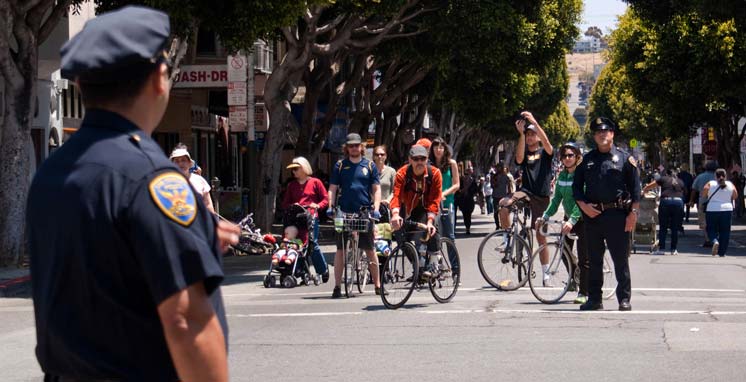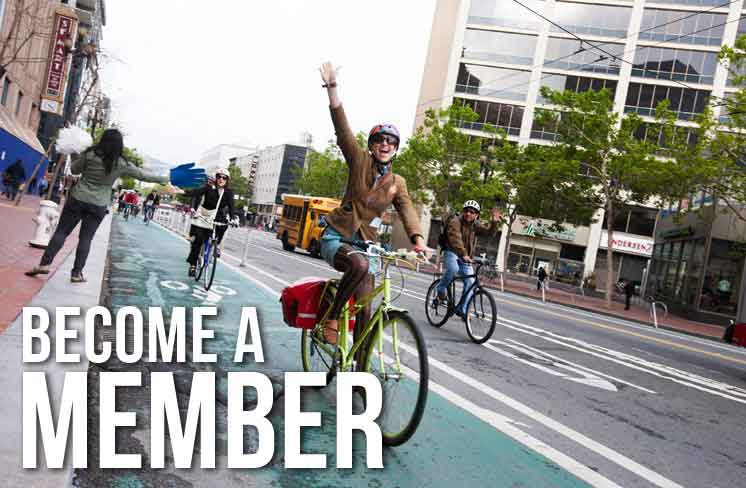When we heard the horrific story about Anthony Ryan being targeted on his bicycle by an aggressive driver in May, we immediately remembered Ryan’s testimony at a 2013 hearing about police investigations of crashes involving someone walking or biking.
Ryan spoke at the time about how he was hit by a driver who was “trying to beat the light” at Ocean Avenue, and suffered injuries for which he had to spend three nights in the hospital and have his jaw wired shut. “Even though the driver was clearly running a red, in the report I was cited at fault,” said Ryan. “There were no consequences for the driver.”
Stories like Ryan’s are why a key part of our work at the San Francisco Bicycle Coalition is focused on ensuring that when people are involved in a traffic collision, all parties are treated fairly and the investigating agency (either the San Francisco Police Department or California Highway Patrol) do a fair and thorough investigation.
This is particularly critical because oftentimes when a collision involves a motorized vehicle and someone biking or walking, he or she is more likely to be unconscious at the scene of the collision or transported immediately to the hospital. As a result, police oftentimes are only interviewing the person who was driving. Combine this with potential language difficulties, the trauma of being involved in a collision and limited knowledge of what is supposed to occur in a police investigation, and the resulting police report can be far from accurate.
Micha Starr Liberty, of Liberty Law, represented Amelie Le Moullac’s family in their successful civil suit against the driver of the large vehicle who ran over and killed Le Moullac on Folsom Street in late 2013. The mishandling of the case by the San Francisco Police Department (SFPD), who originally claimed that Le Moullac was at fault until the San Francisco Bicycle Coalition found video footage proving otherwise, was a very high-profile case of an incomplete and biased investigation.
“What has become crystal clear is that the officers responding to injury collisions in San Francisco need more training on accident investigation and report writing,” Liberty told us. “The Department would benefit from clear policies and procedures that require all evidence be captured, photographed and inventoried, as well as all potential witnesses be identified and interviewed.
“Without a commitment to thorough investigations, people walking and biking will not be able to easily seek justice when injured through no fault of their own,” Liberty said.
At the San Francisco Bicycle Coalition, and as part of the Vision Zero Coalition, we’re working closely with the SFPD to usher in a new era for how our police help achieve truly safe streets for all. We are holding the SFPD accountable to their Vision Zero goal of dramatically increasing enforcement on the five most dangerous traffic behaviors and locations. We’re also advocating for the SFPD and the District Attorney’s Office to improve their investigation procedures to ensure all parties are treated fairly, whether biking, walking or driving.
Take the time to learn what to do if you are in a crash or witness one to ensure a fair and thorough police investigation. It makes a difference.
You can also support our work for better enforcement by becoming a member today.
This post is presented by Liberty Law, who was a 2015 Bike to Work Day sponsor. The content is the San Francisco Bicycle Coalition’s own, and Liberty Law does not exercise editorial control.


